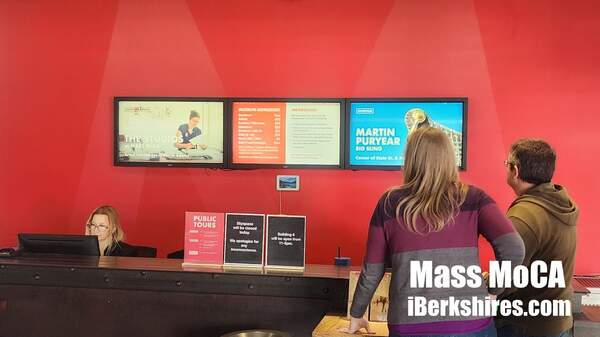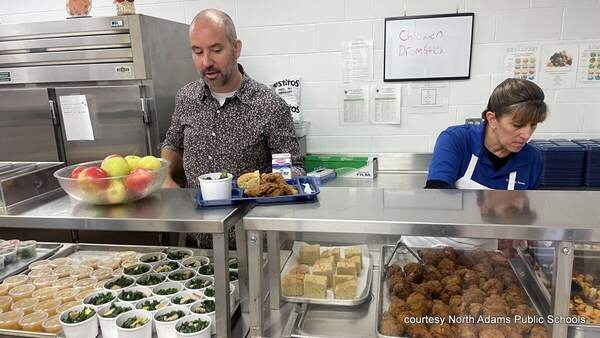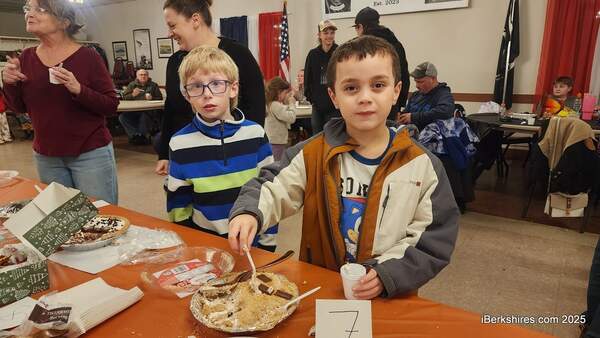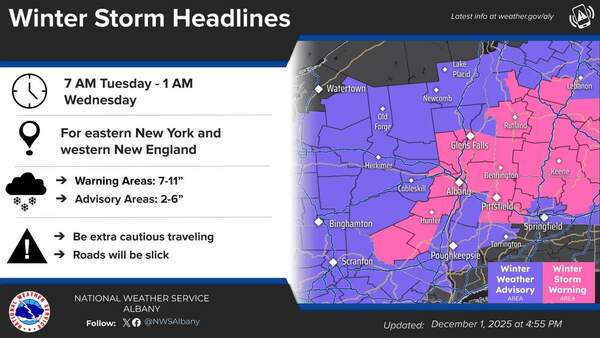
Barrett, Alcombright Spar in First Debate
 Mayor John Barrett III responds to a question. Listen to the entire debate below. |
A push by the city's unionized employees to join the state's Group Insurance Commission last year had set the incumbent, John Barrett III, and challenger Richard Alcombright, a city councilor, at odds.
Barrett, running for a record 14th term, had rejected the unions' efforts to negotiate entry in the state system, saying it wouldn't result in savings. The unions have since claimed the city's been underpaying its portion of the self-insurance premiums and overcharging workers.
"These city employees have come to you ... they put together a plan and you're ignoring them," said Alcombright, who was troubled by Barrett's "vehemently" objecting to the City Council's Finance Committee looking at the numbers in the self-insurance trust and his statement at a meeting that "I don't have to prove it. I don't have to prove anything."
Barrett countered that he was beholden to the taxpayers and had made his decisions based on the experts, noting GIC had increased its premiums twice this year. Yet the unions are angry, he said, that their premiums have gone up 1.5 percent.
| For a Different Perspective: |
| If anyone knows of interesting blogs on the debate, send us a link at info@iberkshires.com Berkshirefinearts North Adams Transcript (This link will archive in 2 weeks) |
The candidates' supporters filled the Massachusetts College of Liberal Art's Church Street Center with enthusiastic applause — and some laughter — during the 90-minute debate. The 18 questions were submitted by debate sponsor Berkshire Chamber of Commerce and the MCLA public policy students, most relating to taxes and commercial growth, with some forays into education. Moderator Tim Farkus, executive editor of The Berkshire Eagle, was the moderator.
The two men agreed on few items; they split on sewer fees and the use of the local options tax, relations with the charter school, and how active the city should be in aiding small business and marketing itself. Alcombright accused Barrett of holding tight control over everything; Barrett that Alcombright had failed to ask questions.
Economic Development
 City Councilor Richard Alcombright waits to respond. |
Barrett said the city's positive image is attracting commercial growth and touted the Massachusetts Museum of Contemporary Art and its annual attendance of upwards of 150,000 as a catalyst for growth.
"It isn't economic development that brings a company to the community, it's the community that brings the business," he said.
Alcombright, however, said the city isn't helpful enough to small businesses and the museum, while attracting crowds, wasn't enough. "They come and they go, they come and they go," he said of Mass MoCA's thousands. "We need to market North Adams as a destination.
"What gets in the way, particularly with small businesses, is our planning process. The planning process becomes complex, it becomes very complicated for those people who are trying to involve themselves in opening a new business," he said. "I think it's a detriment. We really need to find ways to close some of those holes and make things more expedient."
Barrett strongly opposed instituting a sewer user fee, an item that the City Council will take up, and defended the adopting the 2 percent local rooms tax option.
Alcombright said the community and especially the city's innkeepers should have had a chance to speak on how the tax might hurt their business.
"I thought we should get $53,000 in tax relief for residential taxpayers," said Barrett.
His opponent responded that a "public process" should be followed, such as for the sewer user fee. "It's irresponsible not to look at other sources of revenue."
Barrett vowed to veto any sewer fee and claimed Alcombright would move the tax burden from business onto the homeowners. Alcombright said "that will never happen" but added that the city's commercial rate was among the highest in the state and something had to be done about it.
Housing
Alcombright pledged to create a housing commission to develop a plan for the city's aging housing stock and promote home ownership. Barrett replied the city was already doing that with a number of programs and that it had demolished 125 blighted houses in the past decade. Alcombright responded, that "the more we take down the fewer people we have here."
"Some of the houses we took down, we don't want those people in our city," said Barrett, calling them crack houses.
"How did they get to be crack houses?" shot back Alcombright, adding that the city's poverty level was the cause and it had to grow jobs to produce homeowners.
They also went back and forth over the Mohawk Theater, which has had recent work done to the exterior and shoring up in its interior. Alcombright said he would work with MCLA for re-use of the theater, adding that making it a "glorified movie theater" wouldn't create a catalyst for the downtown.
A business model for the theater developed a dozen years ago — before openings of the Colonial, Mahaiwe, '62 Center, and Topia Arts Center — won't hold up now, he said. "We have one shot to do it right and one shot to do it wrong."
Barrett countered "that before you go selling the Mohawk to MCLA, we've been talking to them about for better than two years."
"I'm glad you have a plan for the Mohawk Theater," responded Alcombright, "because no one else knows about it but you."
Alcombright could have asked as chairman of the council's community development committee, said Barrett. "It's going to be a community spot ... [I] always connect every project we've done with the kids in the community."
In their closing statements:
If elected, said Alcombright, "as we move into this new decade, know this, that we are partners in this, my mind will never be closed, my door will always be open, this is our city and I will never forget that."
"We have met success as well as failure but we never have wavered in our pursuit to make North Adams the best city it can be," said Barrett. "Each day as mayor, I look forward to taking on new challenges and I'm motivated by the fact that with these challenges come new opportunities."
The debated was taped by Northern Berkshire Community Television for later broadcast on Thursday, Oct. 1, at 8 p.m.; Friday, Oct. 2, at 7 p.m. and Saturday, Oct. 3, at 6 p.m. on Channel 17.
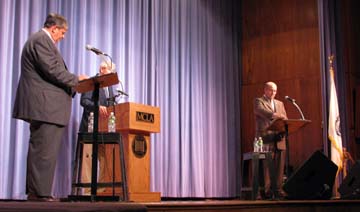 |
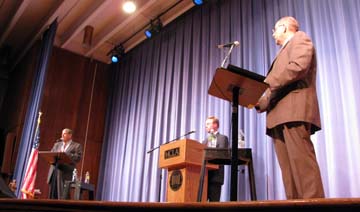 |


